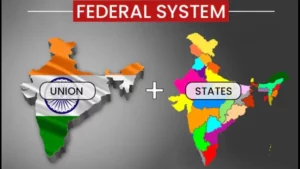GS2 – Polity

Tamil Nadu Forms Committee on State Autonomy
Context:
The Tamil Nadu government has set up a high-powered panel led by former Supreme Court judge, Justice Kurian Joseph. This committee’s primary role is to analyze Centre-State relations and recommend ways to reinforce the constitutional rights of states.
Previously, in 1969, the Rajamannar Committee was established to review the Constitution and suggest reforms to protect the autonomy of states while maintaining national integrity.
Concerns Raised by the Rajamannar Committee
- Central Dominance: Although the Indian Constitution presents a federal structure, the actual functioning had tilted heavily in favour of the Centre, reducing states to mere “administrative agencies of the Union.”
- Provisions Enabling Central Overreach: The committee highlighted Articles 256, 257, and 365 as tools enabling the Union to intrude into state matters. Specifically, Article 365 reinforces the perception of states as subordinate, allowing the Union to assume their legislative and executive powers when directions are not followed.
- Economic Centralisation: The rise of central institutions like the Planning Commission was criticized for making states dependent on financial support, thereby undermining the role of the Finance Commission.
- Federal Disparities: A growing trend was observed where centralised planning, politically motivated grants, and overarching central control threatened the equilibrium of federalism in India.
- Questioning Central Strength: The panel rejected the notion that a dominant Centre is synonymous with national strength. It argued that genuine strength lies in the Union’s ability to show restraint and a clear sense of purpose, not in unchecked expansion of power.
Recommendations by the Rajamannar Committee
- Scrap Article 356 to prevent the misuse of President’s Rule in states.
- Constitute a permanent Inter-State Council under Article 263 to promote Centre-State dialogue.
- Dismantle the Planning Commission, which operates outside the constitutional framework and centralises economic authority.
- Transfer control of sectors like education and health—currently on the Concurrent List—to the State List for better governance.
- Strengthen the Finance Commission to reduce financial reliance of states on the Union government.
Current Status
Despite its significant recommendations, the Rajamannar Committee Report was not acted upon by the Union government. However, many of its points resurfaced in later efforts to assess Centre-State relations, such as in the Sarkaria Commission (1988) and the Punchhi Commission (2010).




